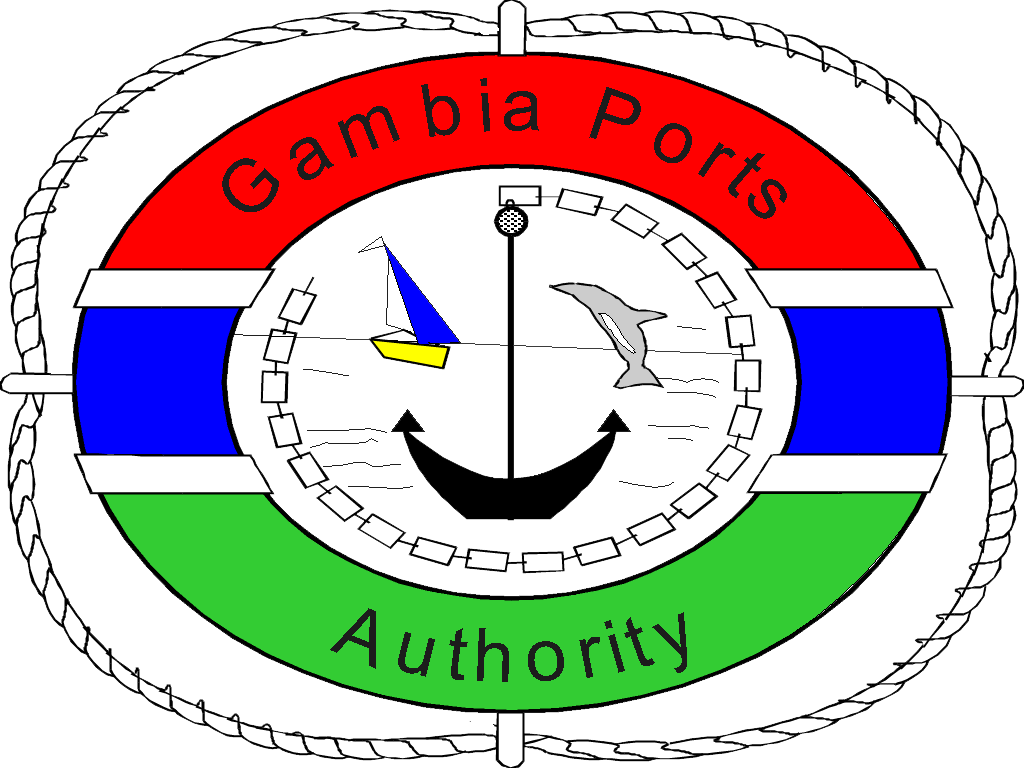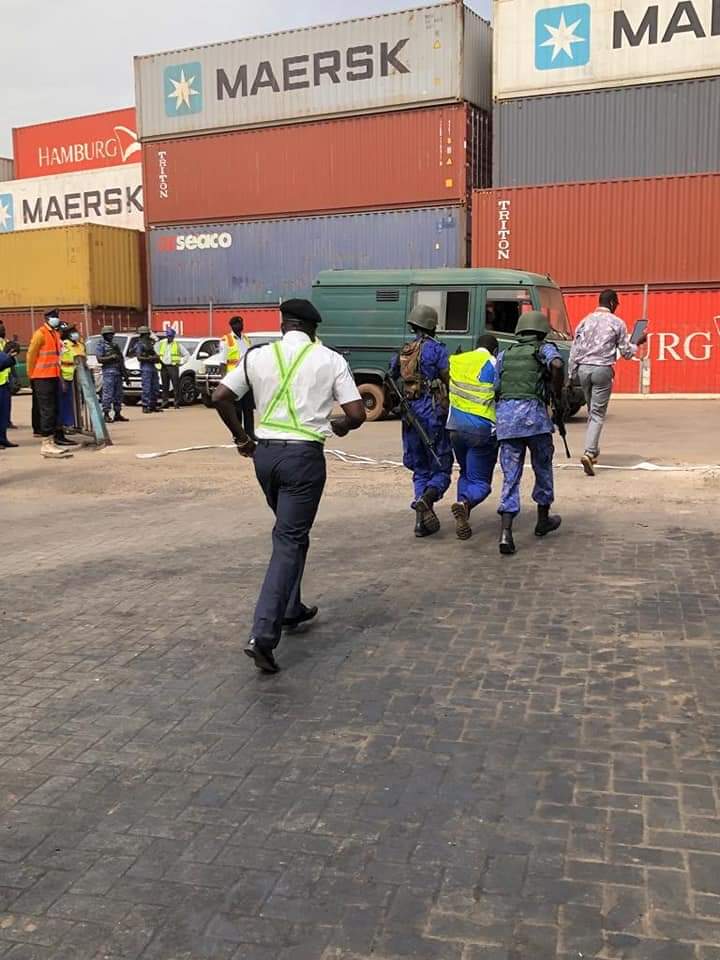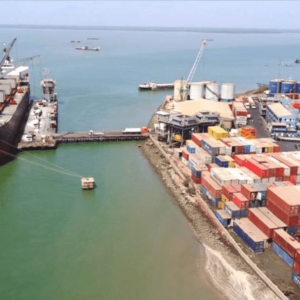On Thursday 28th October 2021, the Gambia Ports Authority and stakeholder institutions convened a Port Facility Maritime Security Exercise (PFMSE) in Banjul Port on the scenario “Fire/Explosion in a Port Installation.” The simulation exercise was in fulfillment of the requirements of the International Ship and Port Facility Security (ISPS) Code; a Code developed and incorporated in SOLAS Convention by International Maritime Organisation (IMO) and came into force in 2004.
The exercise was simulated for a real-time emergency response to Port security threats. It aimed at testing and assessing the state of preparedness of different stakeholders to respond to emergencies as stated in Port Facility Security and Emergency Plan.
This security level 3 exercise was directed by Gambia Navy with the participation of the Gambia Police Force, Gambia Immigration Department, Drug Law Enforcement Agency, State Intelligence Services, Gambia Fire and Rescue Services, Office of National Security, Ministry of Health, and the GPA.
Speaking to the press at the end of the exercise, GPA Port Facility Security Officer (PFSO), Mam Pateh Dampha briefly explained the genesis of the ISPS Code, saying the exercise was in fulfillment of one of its seven functional requirements.
“ISPS Code was developed by IMO after the 9/11 terrorist attack in the US. The Code is incorporated in the SOLAS convention and it came into force in 2004. There are 7 functional requirements of the Code, one of which requires Port operators and stakeholders to conduct training, drills, and exercise so that they can familiarize themselves with the plans and procedures,” PFSO Dampha indicated.
Abdoulie Touray, a representative from the Office of National Security also dilated on the importance of the simulation exercise noting that it was meant to test how well stakeholders command, coordinate, mobilize resources, communicate, and respond to real emergencies.
Lieutenant Commander, Farra Jobe of the Gambia Navy also expressed similar sentiments. He also lauded the scenario adopted saying it has shown both their strengths and areas of improvement.
“From the exercise, we are able to know our strength and level of preparedness to respond to this kind of emergency. We have also learned about limitations and areas of improvement. We need more resources and training to better prepare ourselves for such threats,” he remarked with concern.



